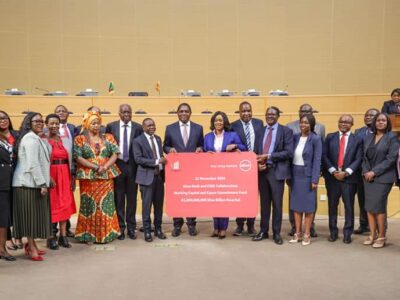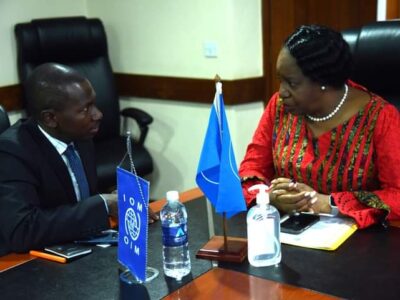As Zambia’s three-year programme with the International Monetary Fund (IMF) nears its conclusion in 2025, Civil Society Organisations (CSOs) have voiced concerns about the country’s future, with some suggesting an immediate exit strategy while others doubt a successful exit given current challenges.
CSO Debt Alliance National Coordinator, Peter Mumba, expressed skepticism about Zambia’s ability to exit the programme successfully due to ongoing issues such as the drought crisis.
“My last two cents on the IMF: if we continue on the current trajectory, I don’t think we will exit successfully because there are still numerous challenges we are facing. There are signs of potential risks going forward, and 2025 is just around the corner.
“We are currently dealing with a drought, which has brought additional challenges, and we also have upcoming elections. The dynamics are different and I don’t think we may exit successfully. They might need an extension,” Mumba said.
Zambia’s debt restructuring process had dragged on for more than three years, with delays causing various socio-economic challenges.
While Mumba suggested a possible extension of the IMF programme, Jesuit Centre for Theological Reflection (JCTR) Executive Director, Alex Muyebe, argued for the need to prepare an exit plan.
Muyebe stated the importance of completing comprehensive debt restructuring, noting that it remained a critical benchmark for programmes like the IMF’s Extended Credit Facility.
He questioned Zambia’s ability to meet these benchmarks in time.
“I don’t think we should be asking for an extension. If anything, the conversations from the onset should have been about what’s next after the extended credit facility. We needed to already have an exit plan,” Muyebe stated.
Meanwhile, Edna Zgambo Kanguya from the Parliamentary Budget Office of the National Assembly of Zambia highlighted recent legislative reforms aimed at improving debt management.
The enactment of the Public Debt Management Act in 2022 replaced the outdated Loans and Guarantees Act of 1969, addressing several deficiencies that contributed to the current debt crisis.
As the IMF programme approaches its end, the call for a clear path forward becomes more urgent, with CSOs pressing for decisive action to navigate Zambia’s financial future.
WARNING! All rights reserved. This material, and other digital content on this website, may not be reproduced, published, broadcast, rewritten or redistributed in whole or in part without prior express permission from ZAMBIA MONITOR.












Comments